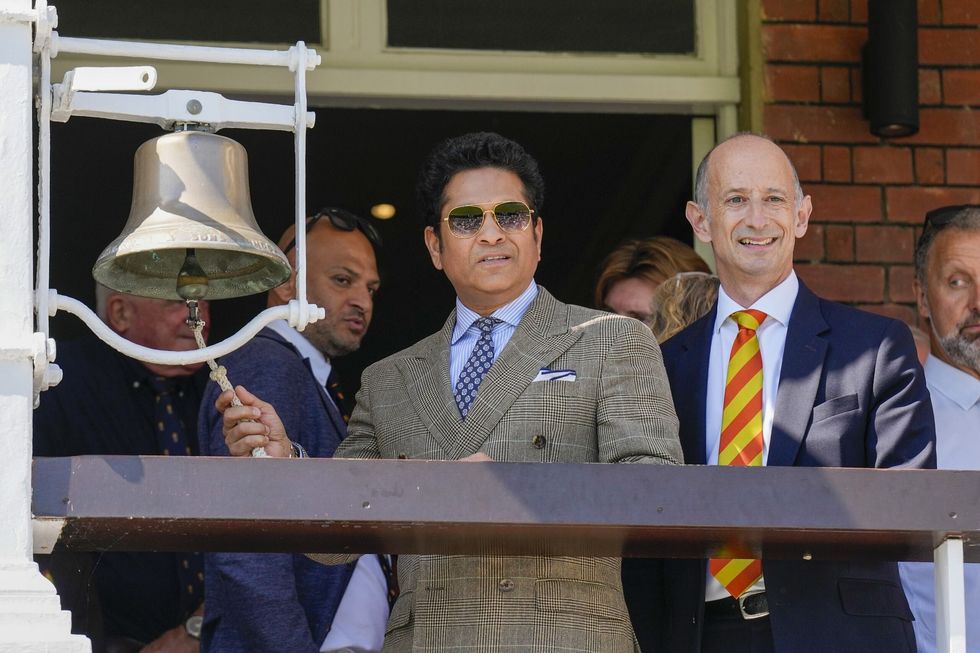JAGUAR will go all-electric as the heritage car brand undergoes a dramatic transformation, its head said in an interview.
Managing director, Rawdon Glover, told the Sunday Times (24) the brand needs to attract a younger audience or risk becoming irrelevant.
“People love us for our history and our heritage, but that has not led to huge commercial success. The average age of the Jaguar client is quite old and getting older. We’ve got to access a completely different audience," Glover said.
The company plans to launch three new electric vehicles by 2026, all designed and built in Britain. These will include a four-door grand tourer, potentially followed by a saloon and an SUV.
Jaguar Land Rover plans to produce just 50,000 of these new vehicles annually, but each will be priced over £100,000. The strategy relies on tapping into a global market of 2.5 million luxury car buyers, the report said.
Jaguar is preparing to completely transform its product lineup by discontinuing all current models in the British market. This dramatic shift includes the withdrawal of previously successful vehicles such as the popular F-Pace SUV, the beloved F-Type sports car, and the critically acclaimed pure electric I-Pace - a model that had been lauded as the world's best car upon its launch six years earlier.
The upcoming first model has already been informally dubbed the "last-chance saloon" within automotive circles. However, Glover said he views this moment as an opportunity to create a new automotive legacy.
His confidence stems partly from the involvement of Gerry McGovern, regarded as Britain's most celebrated car designer. McGovern has been tasked with creating vehicles that Glover believes will become modern design icons, potentially echoing the legendary status of classic Jaguar models like the E-Type, MKII, and XJS.
According to reports, the company is betting heavily on electric technology. The new models will offer a 430-mile range and can charge enough for 200 miles in just 15 minutes - significantly better than many current electric vehicles.
The launch will take place at an art fair in Miami, signalling a move away from traditional motor show presentations.
“We’re our very best when we copy nothing. Look — we’re unveiling the brand at an art fair, rather than a motor show. This is Jaguar being bold, doing things differently," Glover was quoted as saying. He added that all the new cars “will drive like a Jaguar”.
According to him, this isn't just about technology, but a complete brand reimagining. Glover believes the charging infrastructure will improve dramatically, expecting a "quadrupling" of charging points by 2030.
The financial backing for this ambitious transformation is substantial. JLR, owned by Indian conglomerate Tata Motors, posted a record revenue of £29 billion last year, representing a significant 27 per cent increase from the previous year. Pre-tax profits soared to £2.6bn- the highest figure since 2015.
Adrian Mardell, JLR's chief executive, has reinforced the company's commitment to this strategic shift by pledging a massive investment of £15bn across the group over the next four years.
The reinvention of JLR also includes an overhaul of the brand's look and product lineup. The familiar leaping cat logo has been replaced with a softer, golden double-J design, sparking a debate across social media.
High-profile figures like Elon Musk and Nigel Farage have weighed in, with Farage dramatically predicting the company will go bust.
Glover, however, welcomed the controversy. "We wanted to start a debate — to get people thinking about Jaguar differently," he said.
Some view the softer logo and new approach as the brand going "woke", a charge Glover firmly rejected. "This is about breaking moulds, living vividly, and creating distinctive objects of desire," he argued.







 (Photo credit: PTI)
(Photo credit: PTI)










 Kendrick Lamar and SZA commands the stage at Villa Park during his explosive opening setInstagram/
Kendrick Lamar and SZA commands the stage at Villa Park during his explosive opening setInstagram/
